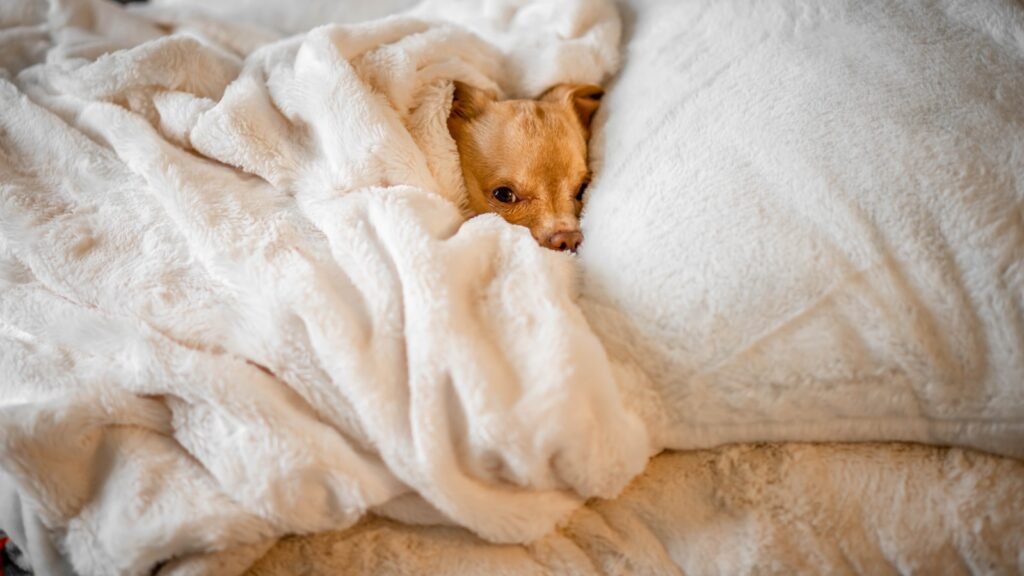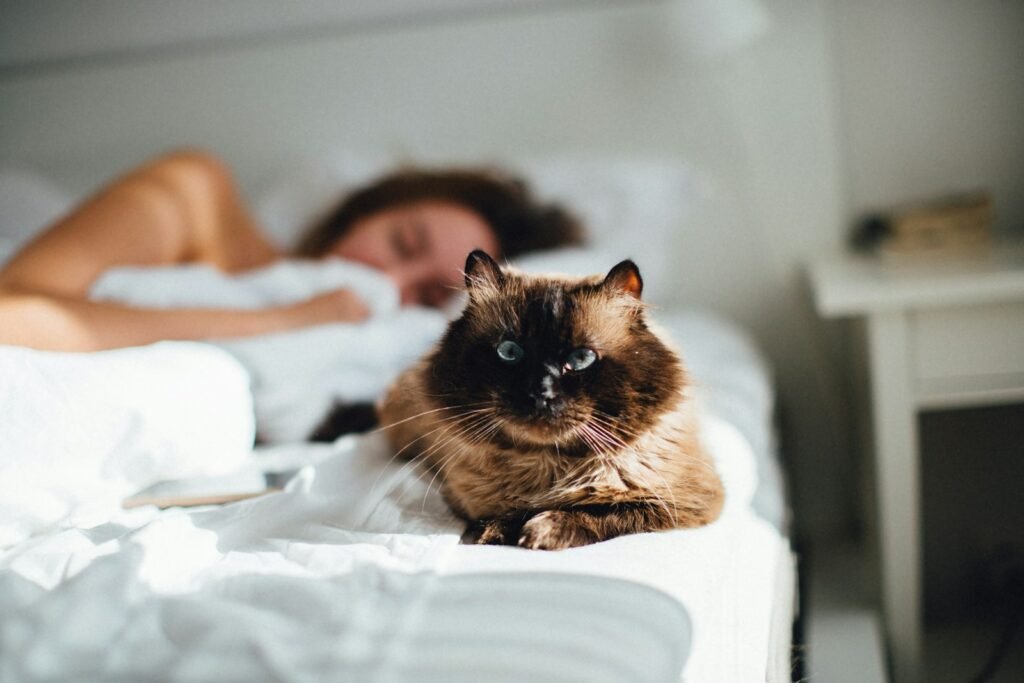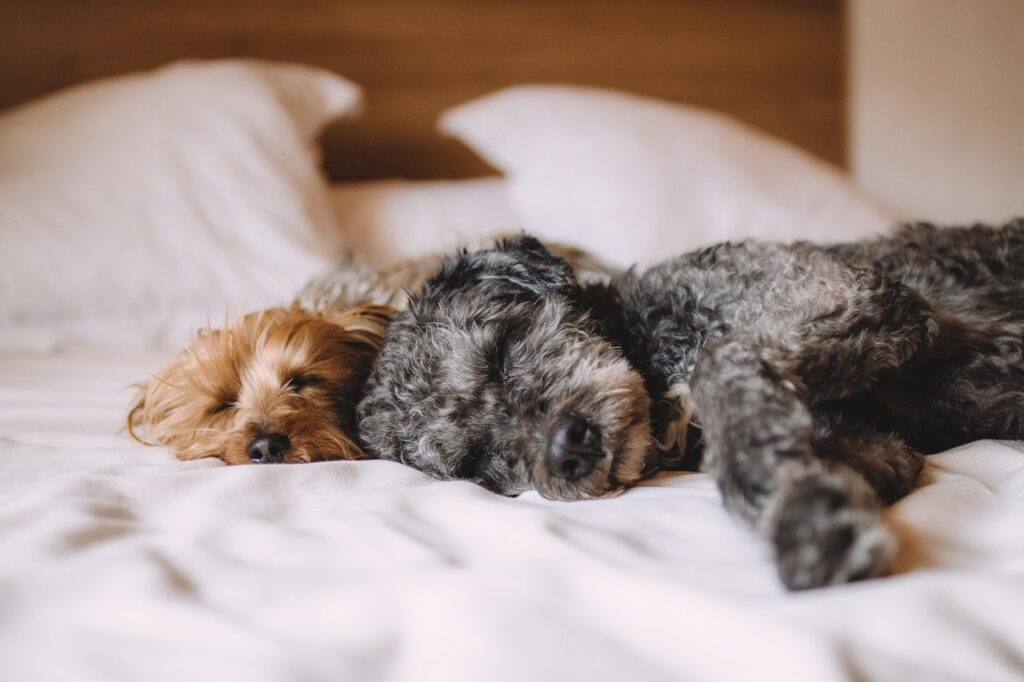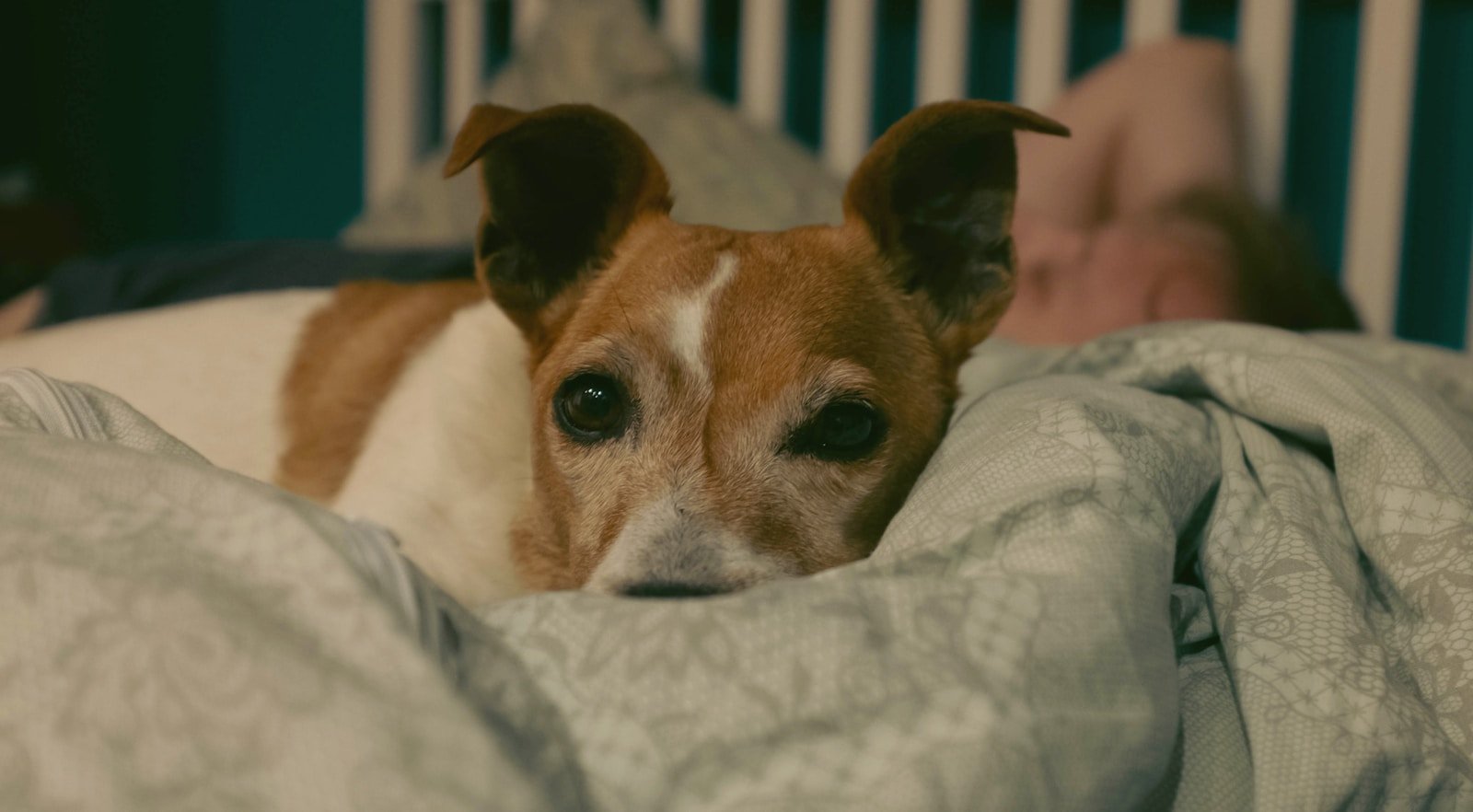Letting your dog or cat curl up beside you at night might feel like the ultimate comfort—but it could be quietly stealing your sleep.
Millions of pet parents let their furry companions share the bed, often saying the emotional support is worth any sleep loss. But according to new insights from sleep and health experts, that nightly cuddle could be coming at a cost to your rest.
A Tail Wagging Disruption

Dr. Melissa Milanak, a clinical psychologist and sleep specialist at the Medical University of South Carolina, says many of her patients report nighttime disturbances caused by their pets.
“You can’t say that hands down, it’s bad for every single person, but there is a lot out there saying it negatively impacts your sleep,” she said.
Dogs are naturally light sleepers, and many will shift, scratch, or even bark in their sleep, nudging their human partner into lighter phases of rest without fully waking them. This can stop your body from going into deep sleep and you may not even realize it. That small disruption, repeated often, adds up—leaving you feeling groggy come morning.
Zoomies at Dawn

Cat people aren’t spared either. Felines tend to be most active during twilight hours, when their wild ancestors would hunt. Cue the 4 a.m. zoomies.
Brian Chin, a psychology professor at Trinity College in Connecticut, has studied the link between pets and sleep quality. His findings? People who share a bed with their animals—especially multiple animals—are more likely to report poorer sleep and symptoms of insomnia.
Chin said pet owners are generally less inclined to report sleep problems if they are caused by their pets. He even admits to having sleep disruption from his cat, as he has one that sleeps in bed with him and one that leaves him alone.
Allergies, Dander, and Routine
Sleep experts also warn that allergens and microbes from pets can affect air quality and disrupt breathing during sleep, even if the pet is well-groomed. And once a pet is part of your sleep routine, they’re hard to evict.
“It’s like if I said to somebody, you need to stop smoking,” Milanak said. “They’re going to give me all the reasons why they want to continue smoking.”
That’s why she doesn’t jump straight into the “no pets in bed” talk with patients. Instead, she asks about sleep disturbances, then gently explores whether their pet might be part of the issue.
Tips for Tired Pet Parents

- Place a cozy pet bed on the floor beside you.
- Keep your sheets washed frequently to minimize allergens.
- Try syncing your sleep schedule with your pet’s—especially if they’re early risers.
- If needed, consider setting boundaries, like keeping the bedroom off-limits at night.
Love Over Loss of Sleep?
Still, for many people, the emotional comfort of having their dog or cat nearby outweighs a few missed zzz’s.
So if it’s not broken—and you’re waking up feeling rested—maybe those cuddles are worth the tosses and turns. Just make sure both you and your pet are getting the sleep you need.






